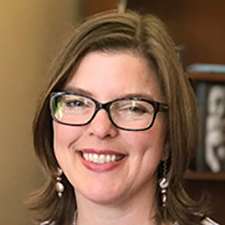
Overcoming Challenges in Bringing Precision Medicine Therapies to Market
ON DEMAND WEBINAR
Duration: 1 hour
To date, precision medicine therapeutics have mostly targeted extremely rare genetic diseases. But precision medicine clinical trials are now reaching more common adult-onset disorders, including neurodegenerative diseases. For example, more than 500 clinical trials have been conducted for Amyotrophic Lateral Sclerosis (ALS) - a number that is dwarfed by clinical research for Alzheimer’s disease. Despite the higher prevalence of these diseases however, patient identification and recruitment and post-market success challenges remain.
In this webinar, we’ll outline strategies to increase access to genetics services for rare disease patient populations and how sponsors can improve post-market success for precision medicine therapies. These strategies are applicable to other common, yet complex, diseases including age-related macular degeneration, cardiovascular disease, and multiple types of cancer.
SPEAKERS

Director of Clinical Trial Services
InformedDNA
Karmen joined InformedDNA in 2009, where she developed the first national telemedicine program for ocular genetic counseling and genetic test coordination services. Karmen now directs clinical trial services at InformedDNA and has managed numerous rare disease outreach programs in collaboration with pharmaceutical companies and patient foundations.

ALS Patient and Advocate
Phil Green was diagnosed with amyotrophic lateral sclerosis (ALS) in August 2018. Previously, he was a walk-on kicker and safety for the 1991 University of Washington National Championship football team and, later, a semi-professional soccer player. Since being diagnosed with ALS, Phil has dedicated his life to making a difference in the fight for access to ALS treatments and the creation of legislation that helps people impacted by this disease.

Senior Clinical Research Coordinator
Dominantly Inherited Alzheimer Network (DIAN)
Ellen joined the DIAN Trials Unit (DIAN-TU) in 2013 and now manages the DIAN Expanded Registry (EXR), a global effort assisting the DIAN-TU clinical trial in recruitment and outreach to potential participants. As part of her current role, Ellen interacts with healthy, young family members deciding on research participation and grappling with the decision to learn their genetic status.